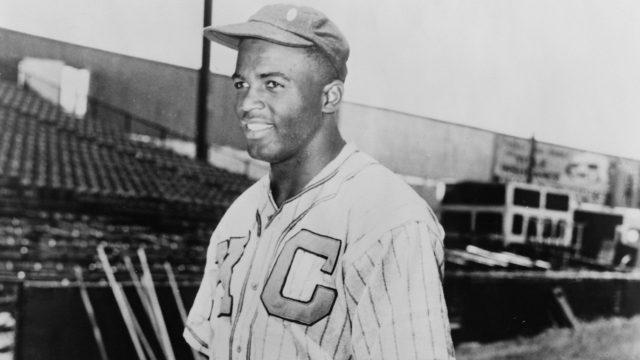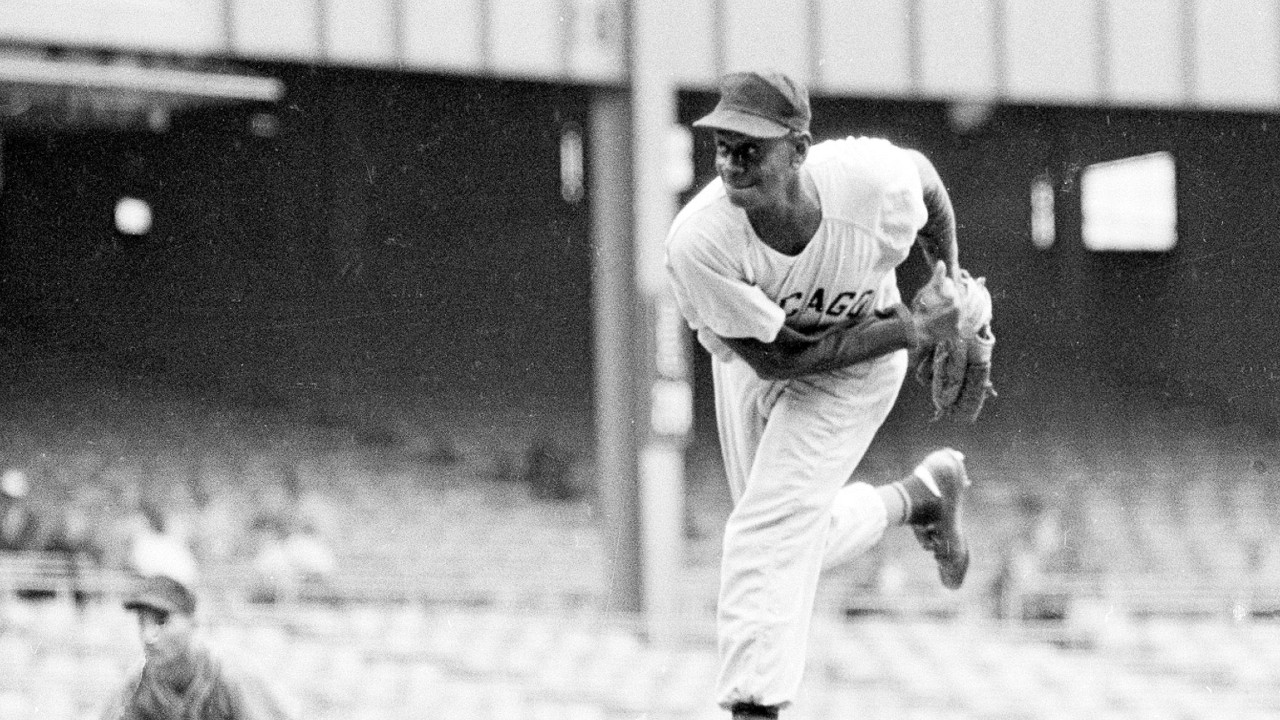
TORONTO — George Springer could list off the names of famous Negro Leagues baseball players even as a young boy. His grandfather made sure of that.
When the Toronto Blue Jays right-fielder was growing up in Connecticut, his grandfather, also named George, would spend plenty of time educating him about the legendary African American players of the past. There were informal history lessons on the likes of Josh Gibson and Satchel Paige, among others.
“He talked about these guys as if they were almost folklore,” Springer says. “I grew up idolizing that.”
Springer’s grandfather emigrated from Panama as a teenager in 1950 to pitch for the Teachers College of Connecticut, which is now known as Central Connecticut State University. His playing career ended due to a torn ulnar collateral ligament inside his throwing elbow, Springer says, noting it could have been fixed by Tommy John surgery, which of course hadn’t been invented yet. Despite hanging up the cleats, though, the elder Springer took pride in sharing his passion for the game with his grandson.
Back in the ’50s, a Black man — and foreigner — living in a U.S. state with little diversity presented its own issues. However, Springer never heard his grandfather share those experiences.
“He kept a lot of that in,” says Springer. “He never really talked about it. It was more so us growing up understanding what the world could be like — obviously there are a lot of really, really good people in this world. But, every now and again, you run into a bad egg.”
Springer reflected on those conversations ahead of Jackie Robinson Day, which will be celebrated across MLB on Saturday. Held annually on April 15, it commemorates the day in 1947 when the iconic Robinson made his major-league debut for the Brooklyn Dodgers, breaking the sport’s colour barrier.
The Blue Jays will celebrate by inviting Sandra Koomson, a Toronto District School Board teacher who previously led programs with the Jays Care Foundation, to throw out the ceremonial first pitch. There will also be an in-game feature on the video board celebrating the Negro Leagues Baseball Museum in Kansas City.
“It’s awesome,” says Blue Jays infielder Whit Merrifield of the museum. “I recommend anybody that visits Kansas City to go check it out.”
Merrifield played the first six-and-a-half seasons of his career with the Kansas City Royals before being traded to the Blue Jays last summer. He’s visited the museum — which is about a 10-minute drive from Kauffman Stadium — on three separate occasions and, in the process, developed a bond with its president, Bob Kendrick.
Through conversations with Kendrick, Merrifield says he became fascinated by the career of Bob Gibson, who pitched 17 years for the St. Louis Cardinals and is arguably the best African American pitcher ever.
“[I learned about] the longevity of Bob Gibson, how long he pitched and how good he was for that length of time,” says Merrifield.
On Saturday, all players and coaches across MLB will wear Robinson’s No. 42. Springer says he’s specifically looking forward to donning that jersey.
“For me, Jackie Robinson means opportunity,” he says. “Because if it wasn’t for what he did as a human, not even just a baseball player, who knows where we would be as a game. Society has changed a lot since his time, but it took a lot of guts and a lot of strength for him to do what he did.
“To wear his number is an extreme honour.”
Springer’s grandfather taught him the Robinson story — how he excelled during a stint with the Kansas City Monarchs of the Negro American League, where he was scouted by Branch Rickey. The Dodgers president and GM eventually signed Robinson, who persevered through intense racism en route to becoming an MVP and seven-time all-star with Brooklyn.
Springer identifies as Hispanic, given the Panamanian heritage on the paternal side of his family and his mother’s Puerto Rican roots. He holds Roberto Clemente in similar reverence to Robinson but acknowledges that the latter’s contributions were responsible for changing the global trajectory of the sport.
“He opened up the game to the entire world,” says Springer. “If you look around our game, we’ve got players from Japan, Korea, China. You’ve got guys from Taiwan, Puerto Rico and Venezuela. I mean, you have guys from everywhere and, obviously, before him, that wasn’t the case.
“I think it’s a very safe argument to say he changed the game of baseball. He opened it up.”







